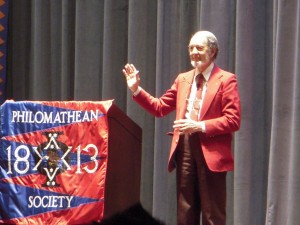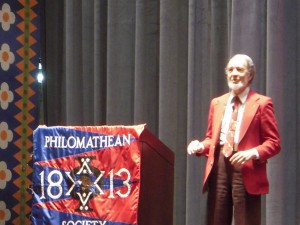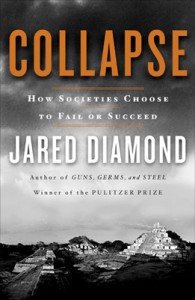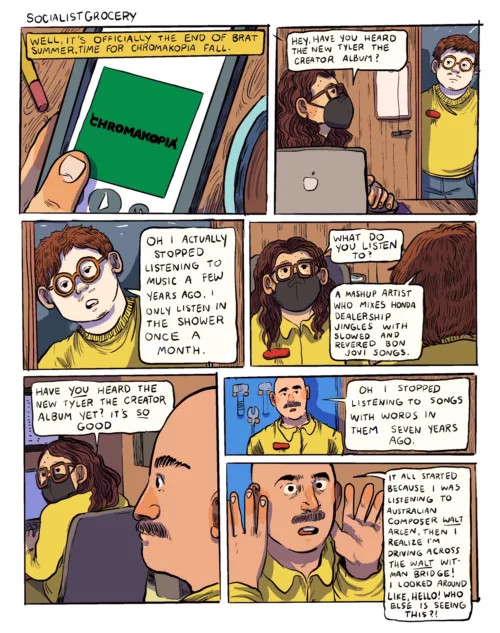[Ed. note: Jared Diamond has a new book, The World Until Yesterday: What Can We Learn from Traditional Societies? reviewed by John Timpane in today’s Inquirer. I covered Diamond’s talk in 2011 at the University of Pennsylvania’s Irvine Auditorium. Diamond, who is a great talker with a unique stage presence, speaks at the Philadelphia Free Library this Sunday, Jan. 13. Tickets required. This post originally ran April 10, 2011.]
Irvine Auditorium was full for UCLA physiology professor Jared Diamond‘s talk last week. The talk was the Philomathean Society‘s Annual Oration on the theme of water, and the Pulitizer Prize winning author of Guns, Germs and Steel (1997) talked about the role of water management in the collapse of civilizations. As topical as tsunami or Hurricane Katrina, water management, done well, as it is in Iceland or the Netherlands can help a society flourish for thousands of years. Mis-managed, as it was for years in New Orleans’ inadequate levee system the result is billions of dollars of reparations and a shattered city that will perhaps never fully recover.

If you’ve read Diamond’s Collapse (2005, highly recommended) you will know the story of the many collapsed civilizations–the Maya, the Anasazi, the Romans, the Easter Islanders, the Vikings. You will also know there are notable exceptions, where societies thrive and don’t collapse — Iceland, Japan, and the longest term success story (46,000 years strong), New Guinea.
Diamond gave a talk very similar to the one he gave in a 2003 Ted talk (18-min. long, highly worth the watch). About the only big change was the switch from a tweedy grey jacket to one of a surprising bright red. But the content of the talk and his delivery — no notes, no Powerpoint slides — the man pacing left and right, gesticulating for emphasis — is the same, even down to the professor’s 5-point checklist for collapse. When you have a story this well-thought out, researched and written, there’s no point in deviating.

Except to bring it up to date. Diamond did that with references to Katrina, gated communities, globalization and technology. Of Katrina, a bad case of water mis-management, he said, the elites were insulated from the worst possible bad effects, just like the Mayan Kings who insulated themselves from their starving people. We all know what happened to the Mayans. “When political leaders and elites isolate themselves from society’s problems then those problems don’t get solved.”
Speaking of gated communities, he said “I’m concerned with US insulation. Politicians are concerned with their own issues and not with larger society issues. In LA we have gated communities surrounded by private security with wealthy people drinking bottled water. Private security, private schools, private pensions, private medical – they are opting out of society. The history of the Mayans says that in the short run walls can protect you but not in the long run.”
We are apparently both worse off than prior civilizations and better off. Worse: there are more people with destructive capabilities; also, machinery and technology now make destruction far speedier than before. It took Easter Islanders 750 years to deplete their island. With chain saws and bulldozers we’re doferesting the earth much more quickly.
We are worse off with globalization. All countries are connected now and one country’s problems become another’s. We now risk global collapse.
Is there anything to hope for? We have two advantages, he said. First, the media. We learn instantly about everything happening everywhere. We have a choice when we have the information. We are the first society to have this.
Second, we have historians who help us learn from the past.
“I am cautiously optimistic. We could start solving our problems tomorrow. Over 40-50 years we will succeed in solving our problems. It takes political will.”
And that is where he left it. Political will. For my part, I left the auditorium far less cautiously optimistic than the author.










